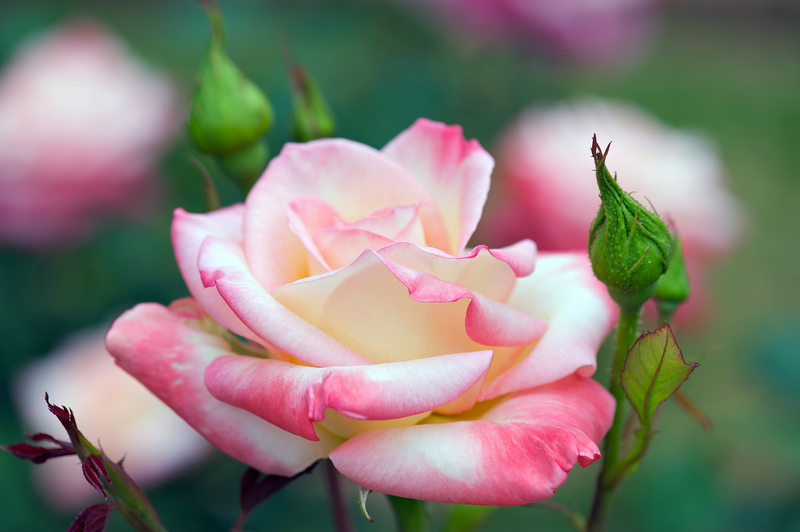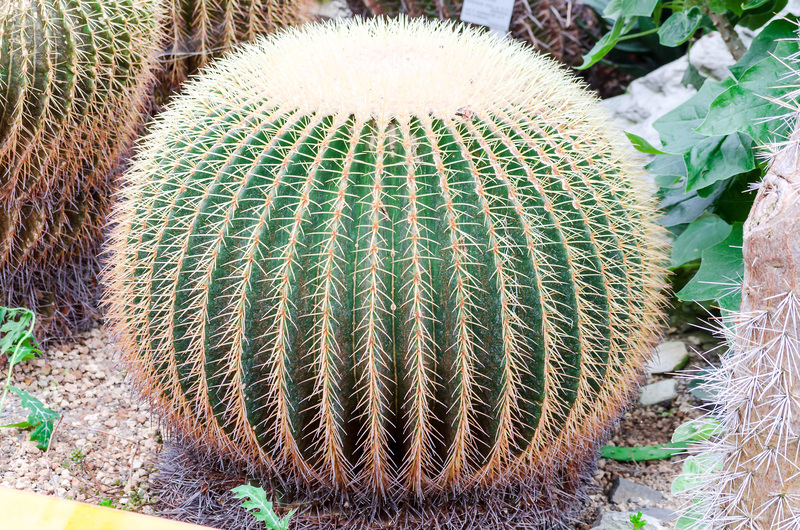Crafting a Weed-Free Environment: Expert Insights
Posted on 14/06/2025
Crafting a Weed-Free Environment: Expert Insights
Weeds are the bane of every gardener's and landscaper's existence. They encroach on garden beds, lawns, and hardscapes, stealing precious resources from desired plants and compromising aesthetics. Crafting a weed-free environment is a goal for many - and achieving it requires more than just pulling a few stray stems. With expert insights, homeowners and professional landscapers alike can effectively create and maintain beautiful, weed-free landscapes. This comprehensive guide will delve deeply into proven techniques, expert advice, and innovative strategies for a thriving, weed-free yard.

Understanding Weeds: The First Step Toward Weed-Free Living
What Are Weeds?
Weeds are unwanted or invasive plants that compete with your desired flora for sunlight, water, nutrients, and space. They range from common dandelions to aggressive species like crabgrass or bindweed. Understanding the enemy is the first step in crafting a weed-free space.
Types of Weeds and Their Lifecycles
Weeds are generally classified into these categories:
- Annual Weeds: Complete their life cycle in a single year (e.g., crabgrass, chickweed).
- Biennial Weeds: Take two years to complete their lifecycle (e.g., wild carrot, bull thistle).
- Perennial Weeds: Live more than two years and typically spread via roots as well as seed (e.g., dandelion, bindweed).
Knowing your enemy means you can strategize more effectively for removal and prevention.
Why a Weed-Free Environment Matters
- Plant Health: Weeds compete for nutrients, sunlight, and water, weakening ornamental and edible plants.
- Pest & Disease Control: Many weeds harbor pests and diseases that can attack your desired plants.
- Visual Appeal: A weed-free environment is tidy, enhancing curb appeal and landscape value.
- Time & Cost Saving: Prevention is always less effortful and cheaper than constant weed removal.
Expert Strategies for Crafting a Weed-Free Landscape
1. Early Intervention: Attack Before They Thrive
- Weed regularly, especially after rainfall when the soil is soft and roots are easier to remove intact.
- Hand-pulling young weeds minimizes seed spread and is often the most effective way to eliminate them before they establish deep roots.
- Use proper weeding tools such as hoes, weeders, or trowels for effective removal.
2. Mulching: The Gardener's Secret Weapon
Applying a thick layer of organic mulch is one of the most effective weed prevention techniques. Mulch blocks sunlight, making it hard for weeds to germinate and grow.
- Organic Mulches: Straw, wood chips, bark, grass clippings, and compost.
- Inorganic Mulches: Landscape fabric, gravel, or rubber mulch.
- Apply mulch 2-4 inches deep. Be careful not to pile mulch directly against plant stems to prevent rot.
Insider tip: Refresh mulch annually for the most consistent weed suppression.
3. Landscape Fabric and Barriers
Expert landscapers often turn to landscape fabric beneath gravel, mulch, or even garden beds to control persistent weeds. The fabric allows water and air through while minimizing weed penetration.
- Choose quality, permeable landscape fabric that doesn't tear easily.
- Install the fabric correctly, anchoring edges, and overlapping seams to prevent weed infiltration.
- Top with a thick layer of mulch for aesthetic and functional benefits.
4. Proactive Lawn and Garden Care
A dense, healthy lawn is nature's best weed prevention method. Weeds exploit thin, stressed turf. Experts recommend:
- Mowing at the highest suggested setting for your grass variety to shade out weed seeds.
- Fertilizing properly - avoid over-fertilizing, which can encourage weed growth as well as grass.
- Watering deeply and infrequently to encourage deep root systems.
- Overseeding bare lawn spots to prevent weed colonization.
5. Seasoned Planting for Weed Suppression
Dense plantings and ground covers shade the soil, deterring sunlight-seeking weeds. Consider:
- Intentionally designing gardens with close plant spacing to crowd out opportunistic weeds.
- Utilizing low-growing ground covers, like creeping thyme or vinca minor, in ornamental beds and hard-to-mow places.
- Planting living mulches in vegetable gardens, such as clover or buckwheat, between crop rows.
6. Smart Watering Practices
Expert gardeners advocate for targeted drip irrigation or soaker hoses rather than overhead watering. This approach delivers moisture directly to the roots of desired plants, leaving weed seeds in drier soil, less likely to germinate.
- Use timers and moisture sensors for accuracy and conservation.
- Avoid watering walkways and paths to prevent weed growth outside beds.
7. Soil Health: Your Secret Weapon Against Weeds
Healthy soil supports robust plant growth, which in turn shades out and outcompetes weeds. Experts stress the importance of:
- Adding organic matter, like compost, to enhance soil structure and fertility.
- Testing soil pH; certain weeds indicate soil imbalances (e.g., moss signals acidity, plantain hints compacted soil).
- Correcting soil issues to favor your chosen plants over weedy competitors.
8. Natural and Organic Weed Control Solutions
If manual weeding or mulching isn't enough, environmentally friendly weed control options come into play:
- Boiling water: Great for spot-treating weeds in cracks or pathways.
- Vinegar or citrus-based herbicides: Kill weeds on contact; most effective on young plants.
- Corn gluten meal: A natural pre-emergent that hinders seed germination in lawns and ornamental beds.
Always use caution - even "natural" options can harm desirable plants if misapplied.
9. Integrated Weed Management (IWM): The Holistic Approach
Experts increasingly recommend Integrated Weed Management, blending cultural, mechanical, physical, and when necessary, safe chemical controls to keep weeds at bay.
- Rotate crops and change planting patterns to disrupt weed lifecycles.
- Use cover crops in off-season or fallow beds to suppress weeds and improve soil.
- Stay vigilant, monitoring for new or invasive species and addressing them promptly.
10. The Role of Herbicides: Use Sparingly and Responsibly
Herbicides can be part of a weed-free environment strategy but should always be used as a last resort, and in strict accordance with label instructions.
- Choose selective herbicides targeting specific weed types (broadleaf, grassy, etc.).
- Spot-treat rather than broadcast spray to minimize environmental impact.
- Consider organic or eco-friendly formulas when possible.
Expert Note: Glyphosate and other non-selective herbicides can impact soil health and pollinators; always weigh risks and alternatives.
Year-Round Calendar for a Weed-Free Yard
Maintaining a weed-free garden or landscape isn't a one-time effort but a continual process. Experts suggest this seasonal approach:
- Spring:
- Apply pre-emergent herbicides before weed seeds germinate.
- Begin mulching and monitor for first weed sprouts.
- Summer:
- Hand-weed persistently; replenish mulch as needed.
- Intensify monitoring in vegetable gardens and flower beds.
- Fall:
- Dig out perennial weeds before they set seed or go dormant.
- Plant cover crops in vegetable beds for winter weed suppression.
- Winter:
- Clean up debris and edge beds.
- Plan for next season's proactive weed control measures.
Common Mistakes to Avoid in Weed-Free Landscaping
- Letting weeds seed: One weed can produce thousands of seeds - always remove before flowering.
- Tilling too frequently: Brings buried weed seeds to the surface; use only as needed.
- Not maintaining mulch: Thinned or decomposed mulch loses effectiveness.
- Ignoring lawn care basics: Sparse or unhealthy lawns allow weed encroachment.
Learning from these pitfalls is essential to maintaining a consistently weed-free environment!

Expert Q&A: Top Questions About Achieving Weed-Free Success
Q: Can I ever truly achieve a 100% weed-free garden?
A: While absolute weed elimination is nearly impossible, combining multiple strategies can deliver a virtually weed-free appearance and dramatically reduce time spent weeding.
Q: Are there any plants that naturally suppress weeds?
A: Yes! Ground covers (like ajuga, pachysandra, or sweet woodruff), dense perennials (hostas, daylilies), and vigorously spreading shrubs all create conditions inhospitable to weeds.
Q: What is the best organic mulch for weed control?
A: Shredded bark, straw, and leaf mold are all excellent choices. Choose based on availability, your garden type, and the desired aesthetic.
Q: How do pre-emergent herbicides work?
A: They create a chemical barrier that prevents **weed seeds from germinating**. Timing is vital - apply before the seeds sprout (often in early spring).
Q: Is hand-pulling effective for established perennial weeds?
A: It can be, if done thoroughly. But for deep-rooted weeds like dandelion or dock, consider using a long-tined weeder to extract the whole taproot, or spot-treat with an appropriate herbicide if needed.
Conclusion: Designing a Lasting, Weed-Free Landscape
Crafting a weed-free environment isn't magic, but a result of understanding, diligence, and layered prevention. By learning how weeds grow, employing expert-recommended strategies such as mulching, dense planting, and early intervention, and avoiding common mistakes, you can dramatically cut down weeding chores and enjoy a more beautiful, productive outdoor space.
Gardeners who consistently apply these expert insights will find their efforts rewarded, season after season, with thriving plants and far fewer weeds to battle. Remember: It's not about eliminating every single weed, but building the healthiest, most competitive garden or landscape possible.
Ready to reclaim your garden? Start implementing these expert weed prevention techniques today and watch your landscape transform into a weed-free haven.
Latest Posts
Nurturing gardens that welcome your four-legged friends
Reap the Rewards of a Self-Sustained Herb Collection
Unleashing Creativity in a Child-Friendly Landscape



